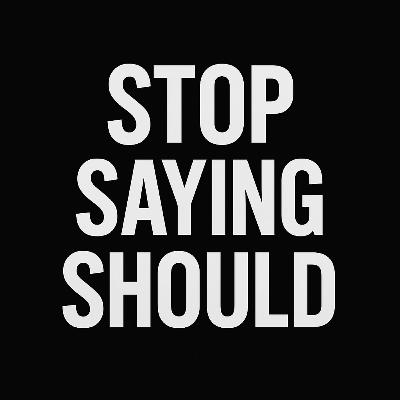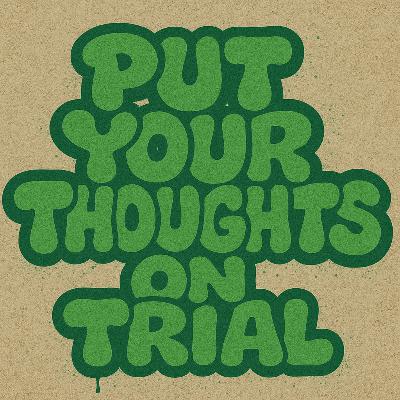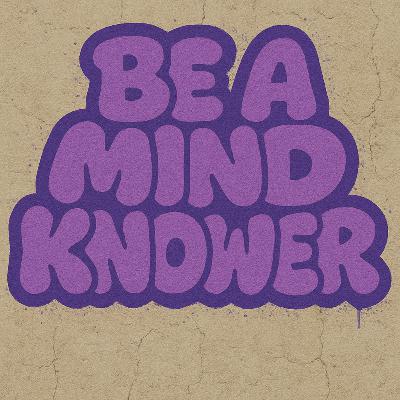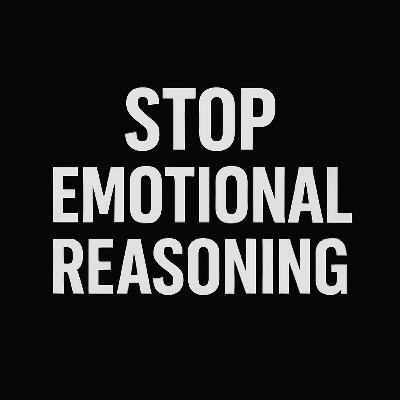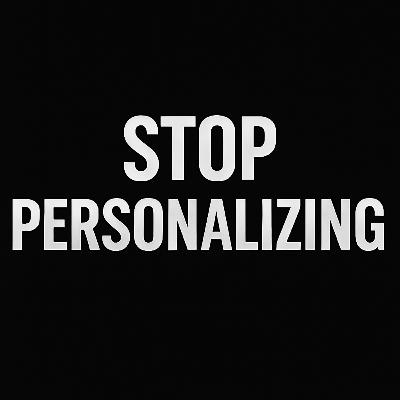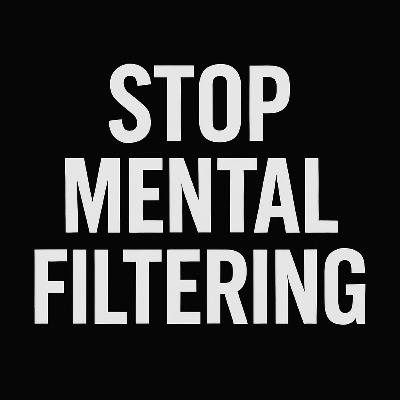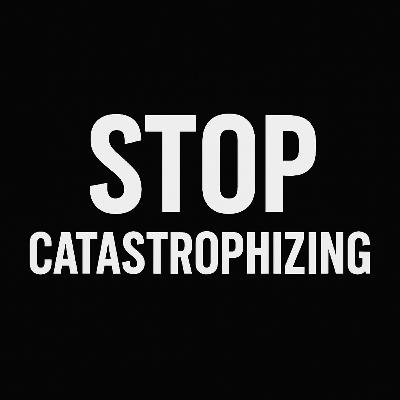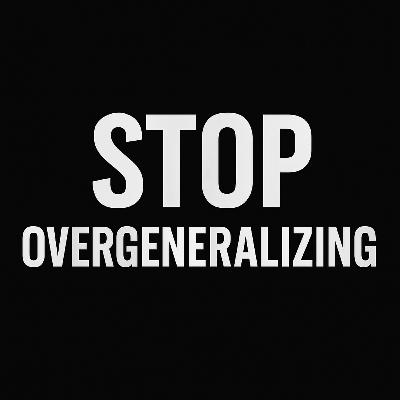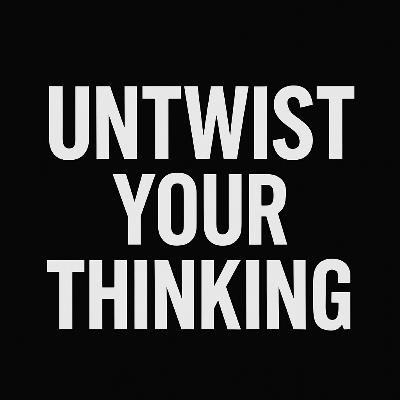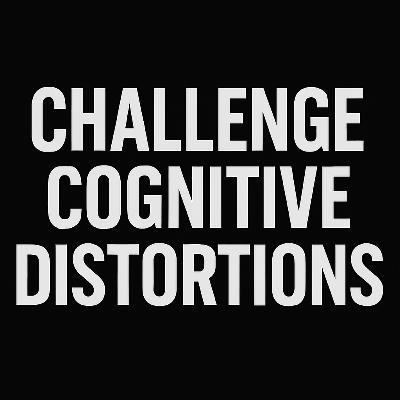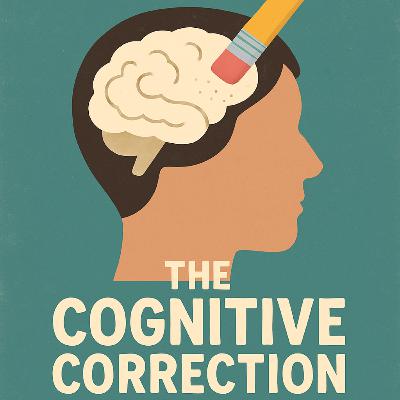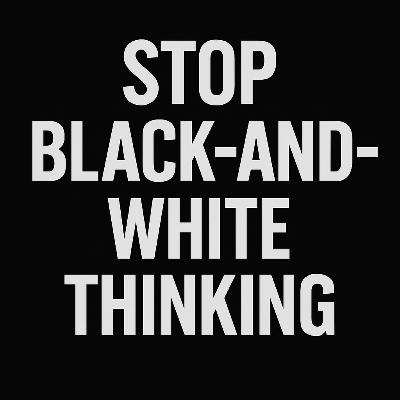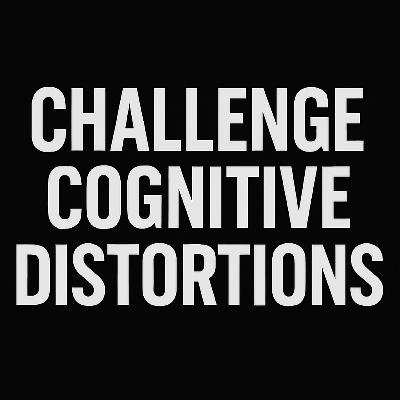Cognitive Distortions: 🧠 "Should" Statements
Description
Are your thoughts causing unnecessary stress and impacting your relationships? This episode explores cognitive distortions, which are unhelpful, irrational thinking patterns that don't accurately represent reality. These mental habits can fuel conflict, heighten emotional reactivity, and damage trust over time.
We delve into common distortions such as:
- All-or-Nothing Thinking (seeing things in extremes)
- Overgeneralization (drawing sweeping conclusions from limited evidence)
- Catastrophizing (anticipating the worst possible outcomes)
- Personalization (taking undue responsibility for events)
- Mind Reading (assuming you know what others think)
- Discounting the Positive (minimizing positive experiences)
- Emotional Reasoning (believing emotions reflect objective reality)
- Labeling (assigning global negative labels)
- Fortune Telling (predicting negative outcomes without evidence)
A particularly impactful distortion discussed is "Should Statements" (also called "shoulding" or "musturbation"). This involves imposing rigid, unrealistic expectations on yourself, others, or how the world "should" be. Learn how this thinking pattern can lead to feelings of guilt, inadequacy, frustration, anger, and damaged relationships. It can create a judgmental mindset and make compromise difficult.
The good news is that by becoming aware of these patterns, you can challenge them and choose more balanced, reality-based thoughts. This process, known as cognitive restructuring, is a key element of therapies like Cognitive Behavioral Therapy (CBT) and Rational Emotive Behavior Therapy (REBT). Identifying and disputing these thoughts helps build psychological flexibility – the ability to consider multiple perspectives.
Tune in to understand how cognitive distortions, especially "should" statements, may be impacting your emotional well-being and relationships, and discover strategies to break free from these unhelpful thinking patterns.
Works Cited
Bonfil, Albert, PsyD. "Cognitive Distortions in Relationships | Identify & Overcome Negative Thinking." Cognitive Behavioral Therapy Los Angeles, 1 May 2025.
"Cognitive distortion." Wikipedia, The Free Encyclopedia, 7 May 2024, https://en.wikipedia.org/w/index.php?title=Cognitive_distortion&oldid=1291976763.
"Cognitive restructuring." Wikipedia, The Free Encyclopedia, 7 May 2024, https://en.wikipedia.org/w/index.php?title=Cognitive_restructuring&oldid=1291979046.
Ellis, Albert. Interview by Lata K. McGinn. "Interview: Albert Ellis on Rational Emotive Behavior Therapy." American Journal of Psychotherapy, vol. 51, no. 3, Summer 1997, pp. 309-316.
Jermann, Melissa, Dr. "Unpacking Perfectionism." Dr. Jermann Therapy, 2024.
Lee, David. "All About “Should” Statements." CPD Online College, 15 Jan. 2025.
Oak Health Foundation. "Negative Thought Patterns: “Should” Statements." Oak Health Foundation, 29 Sept. 2023.
Rudolph, Clare. "The Trouble with ‘Should Statements’ and How to Reframe Them." A Good Place Therapy, 25 Aug. 2025.
Thesilphsecret. "Does The Word "Should" Indicate Some Degree of Preference?" Reddit, 22 Oct. 2024.
Therapist Aid. "Cognitive Distortions." Therapist Aid, n.d.
Note: Some sources were provided as excerpts without the full URL. Citations for these sources list the title of the website or container but do not include a URL as one was not present in the provided text. For the Wikipedia sources, the date provided corresponds to the specific version (oldid) included in the excerpts.

